- Home
- Lisa Kleypas
Love in the Afternoon Page 10
Love in the Afternoon Read online
Page 10
Albert rushed toward them, baying furiously.
“No,” Beatrix said in a low tone, extending her arm to point at him. “Down.”
The dog’s barking flattened into a growl, and he slowly lowered to the floor. His gaze didn’t move from his master.
Beatrix turned her attention back to Christopher. He was gasping and swallowing, struggling to regain his wits. “Christopher,” she said carefully, but he didn’t seem to hear. At this moment, no words would reach him.
She slid her arms around him, one at his shoulders, the other at his waist. He was a large man, superbly fit, his powerful body trembling. A feeling of searing tenderness swept through her, and she let her fingers stroke the rigid nape of his neck.
Albert whined softly, watching the two of them.
Beyond Christopher’s shoulder, Beatrix glimpsed the housemaid standing uncertainly at the doorway, stray forks clutched in her hand.
Although Beatrix didn’t give a fig about appearances or scandal, she cared very much about shielding Christopher during a vulnerable moment. He would not want anyone to see him when he was not fully in command of himself.
“Leave us,” she said quietly.
“Yes, miss.” Gratefully the maid fled, closing the door behind her.
Beatrix returned her attention to Christopher, who didn’t seem to have noticed the exchange. Carefully she drew his head down and turned her cheek against his glinting amber hair. And she waited, letting him feel the even rhythm of her breathing.
The scent of him was clean, summery, like hot sun and saffron. Her eyes closed as she felt his body press along hers with intriguing firmness, his knees digging into the billowing mass of her skirts.
A minute passed, and another. For the rest of her life she would remember lying alone with him in a bright square of sunlight from the window . . . the delicious weight of him, the intimate heat of his breath collecting against her neck. She would have lived in that moment forever, if it were possible. I love you, she thought. I am madly, desperately, permanently in love with you.
His head lifted, and he looked down at her with bewildered gray eyes. “Beatrix.” His ragged whisper thrilled along her nerves. His hands cradled her head, long fingers weaving gently through her tumbled dark locks. “Have I hurt you?”
Beatrix’s stomach went tight. She shook her head, unable to speak. Oh, the way he was looking at her, really looking at her . . . this was the Christopher of her dreams. This was the man who had written to her. He was so caring, and real, and dazzling, that she wanted to weep.
“I thought . . .” Christopher broke off and drew his thumb over the hot surface of her cheek.
“I know,” she whispered, her nerves sparking at his touch.
“I didn’t mean to do that.”
“I know.”
His gaze went to her parted lips, lingering until she felt it like a caress. Her heart labored to supply blood to her nerveless limbs. Every breath caused her body to lift up against his, a teasing friction of firm flesh and clean, warm linen.
Beatrix was transfixed by the subtle changes in his face, the heightening color, the silver brightness of his eyes. Possibilities entered the quietness, like sun breaking through forest canopy.
She wondered if he were going to kiss her.
And a single word flashed through her mind.
Please.
Chapter Eleven
Christopher tensed against the shaking in his muscles. His heartbeat roared in his ears. He struggled to comprehend how he had so utterly lost control of the situation. A noise had startled him, and he had reacted without thinking. He had been aware of nothing until he had found himself lying over Beatrix, trying to protect her, trying to protect them both . . . and when the ferocious heartbeat had faded from his ears, he was suffused with the hideous awareness of what he had done.
Knocking a defenseless woman to the ground. Leaping on her like a madman. Christ. He felt disoriented, and more than a little crazed. He might have injured her.
He had to help her up, offer an apology. Instead he watched as his exploring fingertips went to her throat, stroking a tiny pulse. Holy hell, what was he doing?
It had been a long time since a woman had held him. It felt so good that he couldn’t make himself release her just yet. Her body cradled his with supple feminine strength. Those slim, gentle fingers continued to stroke the back of his neck. He had never seen such blue eyes, clear and dark like Bristol blue glass.
Christopher tried to remember the reasons why he shouldn’t want her. He even tried to summon thoughts of Prudence, but it was impossible. He closed his eyes and felt her breath striking his chin. He felt her everywhere, with his entire body, her scent in his nose and throat, her warmth sinking into him.
It seemed as if all the months and years of need had distilled to this one moment, this slender form tucked beneath his. He was actually afraid of what he might do to her. He knew he should roll away, put distance between them, but all he could do was gather in the sensations of her, the enticing rise and fall of her breasts, the feel of her legs splayed beneath the layers of her skirts. The stroke of her fingers on his nape raised chills of pleasure, and at the same time turned his flesh hot with need.
Desperately he groped for her hands and pinned them over her head.
Better.
And worse.
Her gaze provoked him, invited him closer. He could feel the force of will in her, radiant as heat, and everything in him responded to it. Fascinated, he watched a blush spread over her skin. He wanted to follow the spreading color with his fingers and mouth.
Instead he shook his head to clear it. “I’m sorry,” he said, and took a rough breath. “I’m sorry,” he repeated. A humorless laugh scraped in his throat. “I’m always apologizing to you.”
Her wrists relaxed in his hold. “This wasn’t your fault.”
Christopher wondered how the hell she could appear so composed. Aside from the stain of color in her cheeks, she showed no sign of unease. He had a quick, annoying sense of being managed. “I threw you to the floor.”
“Not intentionally.”
Her efforts to make him feel better were having the opposite effect. “Intentions don’t matter when you’ve been knocked over by someone twice your size.”
“Intentions always matter,” Beatrix said. “And I’m used to being knocked over.”
He let go of her hands. “This happens to you often?” he asked sardonically.
“Oh, yes. Dogs, children . . . everyone leaps on me.”
Christopher could well understand that. Leaping on her was the most pleasurable thing he’d done in years. “Being neither a dog nor a child,” he said, “I have no excuse.”
“The maid dropped a tray. Your reaction was perfectly understandable.”
“Was it?” Christopher asked bitterly, rolling off her. “I’ll be damned if I understand it.”
“Of course it was,” Beatrix said as he helped her up from the floor. “For a long time you’ve been conditioned to dive for cover every time a shell or canister exploded, or a bullet was fired. Just because you’ve come back home doesn’t mean that such reflexes can be easily discarded.”
Christopher couldn’t help wondering . . . Would Prudence have forgiven him so quickly, or reacted with such self-possession?
His face darkened as a new thought occurred to him. Did he have any right to go to Prudence, when his behavior was so unpredictable? He couldn’t put her at risk. He had to gain control over himself. But how? His reflexes were too strong, too fast.
At Christopher’s prolonged silence, Beatrix went to Albert and bent to pet him. The dog rolled on his back, offering his tummy.
Christopher straightened his clothes and shoved his hands into his trouser pockets.
“Will you reconsider your decision?” Beatrix asked. “About letting me take Albert?”
“No,” Christopher said brusquely.
“No?” she repeated, as if his refusal were inconceivabl
e.
Christopher scowled. “You needn’t worry about him. I’ve left the servants specific instructions. He will be well cared for.”
Beatrix’s face was taut with indignation. “I’m sure you believe so.”
Nettled, he snapped, “I wish I took the same enjoyment in hearing your opinions that you take in airing them, Miss Hathaway.”
“I stand by my opinions when I know I’m right, Captain Phelan. Whereas you stand by yours merely because you’re stubborn.”
Christopher gave her a stony stare. “I will escort you out.”
“Don’t bother. I know the way.” She strode to the threshold, her back very straight.
Albert began to follow, until Christopher commanded him to come back.
Pausing at the threshold, Beatrix turned to give Christopher an oddly intent stare. “Please convey my fondness to Audrey. You both have my hopes for a pleasant journey to London.” She hesitated. “If you wouldn’t mind, please relay my good wishes to Prudence when you see her, and give her a message.”
“What is it?”
“Tell her,” Beatrix said quietly, “that I won’t break my promise.”
“What promise is that?”
“She’ll understand.”
Precisely three days after Christopher and Audrey had left for London, Beatrix went to the Phelans’ house to ask after Albert. As she had expected, the dog had set the household into chaos, having barked and howled incessantly, ripped carpeting and upholstery to shreds, and bitten a footman’s hand.
“And in addition,” the housekeeper, Mrs. Clocker, told Beatrix, “he won’t eat. One can already see his ribs. And the master will be furious if we let anything happen to him. Oh, this is the most trying dog, the most detestable creature I’ve ever encountered.”
A housemaid who was busy polishing the banister couldn’t seem to resist commenting, “He scares me witless. I can’t sleep at night, because he howls fit to wake the dead.”
The housekeeper looked aggrieved. “So he does. However, the master said we mustn’t let anyone take Albert. And as much as I long to be rid of the vicious beast, I fear the master’s displeasure even more.”
“I can help him,” Beatrix said softly. “I know I can.”
“The master or the dog?” Mrs. Clocker asked, as if she couldn’t help herself. Her tone was wry and despairing.
“I can start with the dog,” Beatrix said in a low undertone.
They exchanged a glance.
“I wish you could be given the chance,” Mrs. Clocker murmured. “This household doesn’t seem like a place where anyone could get better. It feels like a place where things wane and are extinguished.”
This, more than anything, spurred Beatrix into a decision. “Mrs. Clocker, I would never ask you to disobey Captain Phelan’s instructions. However . . . if I were to overhear you telling one of the housemaids where Albert is being kept at the moment, that’s hardly your fault, is it? And if Albert manages to escape and run off . . . and if some unknown person were to take Albert in and care for him but did not tell you about it immediately, you could not be blamed, could you?”
Mrs. Clocker beamed at her. “You are devious, Miss Hathaway.”
Beatrix smiled. “Yes, I know.”
The housekeeper turned to the housemaid. “Nellie,” she said clearly and distinctly. “I want to remind you that we’re keeping Albert in the little blue shed next to the kitchen garden.
“Yes, mum.” The housemaid didn’t even glance at Beatrix. “And I should remind you, mum, that his leash is on the half-moon table in the entrance hall.”
“Very good, Nellie. Perhaps you should run and tell the other servants and the gardener not to notice if anyone goes out to visit the blue shed.”
“Yes, mum.”
As the housemaid hurried away, Mrs. Clocker gave Beatrix a grateful glance. “I’ve heard that you work miracles with animals, Miss Hathaway. And that’s indeed what it will take, to tame that flea-ridden fiend.”
“I offer no miracles,” Beatrix said with a smile. “Merely persistence.”
“God bless you, miss. He’s a savage creature. If dog is man’s best friend, I worry for Captain Phelan.”
“So do I,” Beatrix said sincerely.
In a few minutes she had found the blue shed.
The shed, built to contain light gardening implements, shuddered as the creature inside lunged against the wall. A fury of barking erupted as Beatrix drew closer. Although Beatrix had no doubt of her ability to handle him, his ferocious baying, which sounded almost unearthly, was enough to give her pause.
“Albert?”
The barking became more passionate, with cries and whimpers breaking in.
Slowly Beatrix lowered to the ground and sat with her back against the shed. “Calm yourself, Albert,” she said. “I’ll let you out as soon as you’re quiet.
The terrier growled and pawed at the door.
Having consulted several books on the subject of dogs, one on rough terriers in particular, Beatrix was fairly certain that training Albert with techniques involving dominance or punishment would not be at all effective. In fact, they would probably make his behavior worse. Terriers, the book had said, frequently tried to outsmart humans. The only method left was to reward his good behavior with praise and food and kindness.
“Of course you’re unhappy, poor boy. He’s gone away, and your place is by his side. But I’ve come to collect you, and while he’s gone, we’ll work on your manners. Perhaps we can’t turn you into a perfect lapdog . . . but I’ll help you learn to get on with others.” She paused before adding with a reflective grin, “Of course, I can’t manage to behave properly in polite society. I’ve always thought there’s a fair amount of dishonesty involved in politeness. There, you’re quiet now.” She stood and pulled at the latch. “Here is your first rule, Albert: it’s very rude to maul people.”
Albert burst out and jumped on her. Had she not been holding on to the support of the shed’s frame, she would have been knocked over. Whining and wagging his tail, Albert stood on his hind legs and dove his face against her. He was rawboned and ragged, and distinctly malodorous.
“My good boy,” Beatrix said, petting and scratching his coarse fur. She tried to slip the leash around his neck, but was prevented as he wriggled to his back, his quivering legs stuck straight into the air. Laughing, she obliged him with a tummy rub. “Come home with me, Albert. I think you’ll do very well with the Hathaways—or at least you will after I’ve given you a bath.”
Chapter Twelve
Christopher delivered Audrey safely to London, where her family, the Kelseys, had welcomed her eagerly. The large Kelsey brood was overjoyed to have their sister with them. For reasons no one had quite understood, Audrey had refused to allow any of her relations to come stay with her in Hampshire after John’s death. She had insisted on grieving with Mrs. Phelan unaccompanied by anyone else.
“Your mother was the only one who felt John’s loss as keenly as I did,” Audrey had explained to Christopher during the carriage drive to London. “There was a kind of relief in that. Any of my family would have tried to make me feel better, and surrounded me with love and comfort, which would have kept me from grieving properly. The whole thing would have been drawn out. No, it was the right thing to live in grief for as long as I needed. Now it’s time to recover.”
“You’re very good at organizing your feelings, aren’t you?” Christopher had asked dryly.
“I suppose I am. I wish I could organize yours. At present they seem to resemble an overturned drawer of neckcloths.”
“Not neckcloths,” he said. “Flatware, with sharp edges.”
Audrey had smiled. “I pity those who find themselves in the way of your feelings.” Pausing, she had studied Christopher with fond concern. “How difficult it is to look at you,” she commented, startling him. “It’s the resemblance you bear to John. You’re more handsome than he was, of course, but I preferred his face. A wonderful everyday fa
ce—I never tired of it. Yours is a bit too intimidating for my taste. You resemble an aristocrat far more than John did, you know.”
Christopher’s gaze darkened as he thought of some of the men he’d fought with, who’d been fortunate to survive their wounds, but had suffered some manner of disfigurement. They had wondered how they would be received upon their return home, if wives or sweethearts would turn away in horror from their ruined appearances. “It doesn’t matter what someone looks like,” he said. “All that matters is what he is.”
“I’m so very glad to hear you say that.”
Christopher gave her a speculative glance. “What are you leading to?”
“Nothing. Except . . . I want to ask you something. If another woman—say, Beatrix Hathaway—and Prudence Mercer were to exchange appearances, and all that you esteemed in Prudence was transferred to Beatrix . . . would you want Beatrix?”
“Good God, no.”
“Why not?” she asked indignantly.
“Because I know Beatrix Hathaway, and she’s nothing like Pru.”
“You do not know Beatrix. You haven’t spent nearly enough time with her.”
“I know that she’s unruly, opinionated, and far more cheerful than any reasoning person should be. She wears breeches, climbs trees, and roams wherever she pleases without a chaperone. I also know that she has overrun Ramsay House with squirrels, hedgehogs, and goats, and the man unlucky enough to marry her will be driven to financial ruin from the veterinary bills. Would you care to contradict any of those points?”
Audrey folded her arms and gave him a sour look. “Yes. She doesn’t have a squirrel.”
Reaching inside his coat, Christopher pulled out the letter from Pru, the one he carried with him always. It had become a talisman, a symbol of what he had fought for. A reason for living. He looked down at the bit of folded paper, not even needing to open it. The words had been seared into his heart.

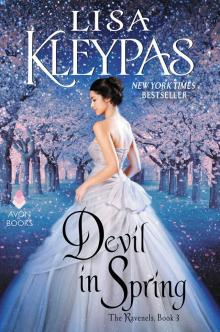 Devil in Spring
Devil in Spring Sugar Daddy
Sugar Daddy Devil in Winter
Devil in Winter Dreaming of You
Dreaming of You Christmas Eve at Friday Harbor
Christmas Eve at Friday Harbor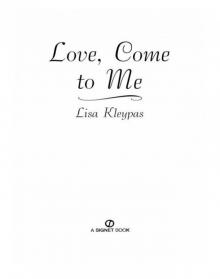 Love, Come to Me
Love, Come to Me Only With Your Love
Only With Your Love Suddenly You
Suddenly You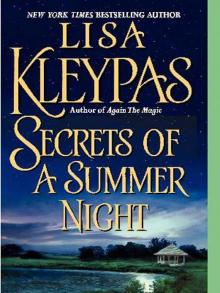 Secrets of a Summer Night
Secrets of a Summer Night Cold-Hearted Rake
Cold-Hearted Rake Where's My Hero?
Where's My Hero? Gifts of Love
Gifts of Love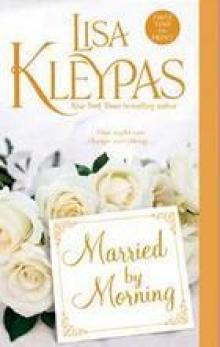 Married by Morning
Married by Morning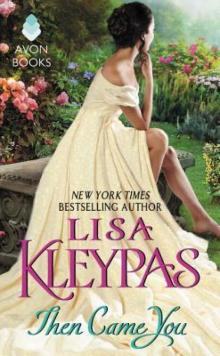 Then Came You
Then Came You Wish List
Wish List Where Dreams Begin
Where Dreams Begin A Historical Christmas Present
A Historical Christmas Present Somewhere I'll Find You
Somewhere I'll Find You Scandal in Spring
Scandal in Spring Someone to Watch Over Me
Someone to Watch Over Me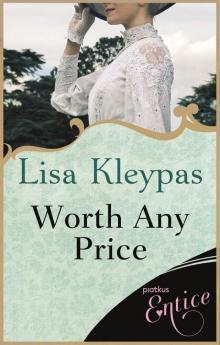 Worth Any Price
Worth Any Price Prince of Dreams
Prince of Dreams It Happened One Autumn
It Happened One Autumn Love in the Afternoon
Love in the Afternoon Devil's Daughter
Devil's Daughter A Wallflower Christmas
A Wallflower Christmas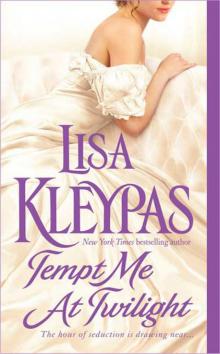 Tempt Me at Twilight
Tempt Me at Twilight Brown-Eyed Girl
Brown-Eyed Girl Mine Till Midnight
Mine Till Midnight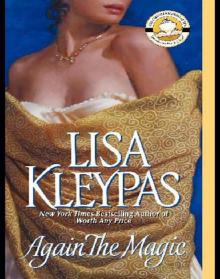 Again the Magic
Again the Magic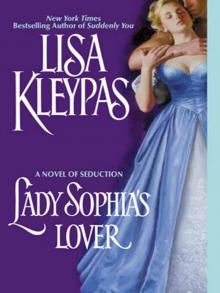 Lady Sophia's Lover
Lady Sophia's Lover Because You're Mine
Because You're Mine Midnight Angel
Midnight Angel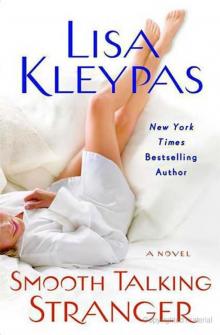 Smooth-Talking Stranger
Smooth-Talking Stranger Blue-Eyed Devil
Blue-Eyed Devil Hello Stranger
Hello Stranger Dream Lake
Dream Lake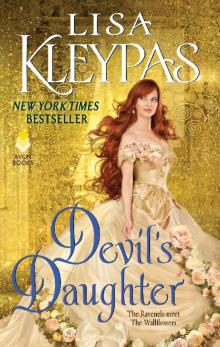 Devil's Daughter: The Ravenels Meet the Wallflowers
Devil's Daughter: The Ravenels Meet the Wallflowers A Christmas to Remember
A Christmas to Remember Smooth Talking Stranger
Smooth Talking Stranger Crystal Cove
Crystal Cove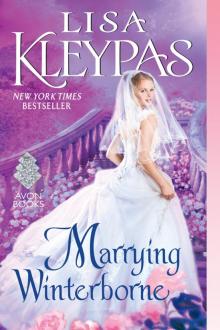 Marrying Winterborne
Marrying Winterborne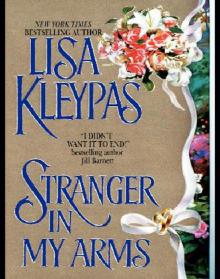 Stranger in My Arms
Stranger in My Arms Devil in Disguise
Devil in Disguise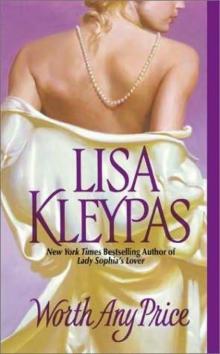 Worth Any Price bsr-3
Worth Any Price bsr-3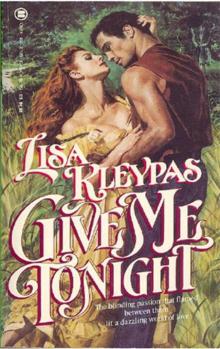 Give Me Tonight
Give Me Tonight Rainshadow Road fh-2
Rainshadow Road fh-2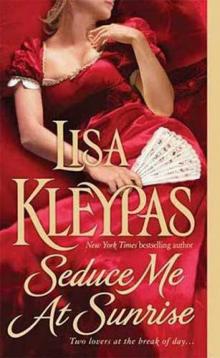 Seduce Me At Sunrise
Seduce Me At Sunrise I Will
I Will Someone to Watch Over Me bsr-1
Someone to Watch Over Me bsr-1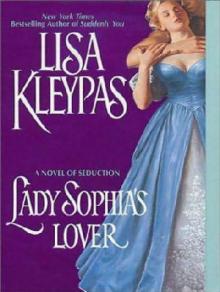 Lady Sophias Lover bsr-2
Lady Sophias Lover bsr-2 A Hathaway Wedding
A Hathaway Wedding A Hathaway Wedding (Hathaways Bk2.5)
A Hathaway Wedding (Hathaways Bk2.5) Worth Any Price - Bow Street 3
Worth Any Price - Bow Street 3 Christmas with Holly
Christmas with Holly